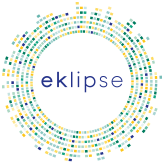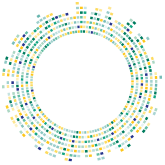Timeline
Date request received: April/2020
Freshwater ecosystems are best assessed using aquatic invertebrates, as they are the most biologically and functionally diverse group of organisms in aquatic ecosystems. Our IUCN Task Force on Harmonizing Global Macroinvertebrate Sampling Protocols aims to coordinate the standardization of sampling protocols globally. This activity will improve on already existing protocols, and support countries that do not yet have protocols, particularly in the developing world. We request financial support for the first milestone workshop of our IUCN Task Force on Harmonizing Global Macroinvertebrate Sampling Protocols. Freshwater invertebrates are an extremely species-rich organism group. They perform crucial ecosystem functions, which are supporting many ecosystem services that are paramount for the wellbeing of human societies worldwide. Yet, in many countries, invertebrates are rarely monitored, standardized monitoring protocols are rare, and data are lacking on the abundance of species and their changes in space and time. The situation is especially acute in freshwater systems in the tropics and hampers adequate protection and management of these biodiversity hotspots.
In addition to the local, national and regional benefits that the Task Force will provide, a concerted effort towards standardization of sampling protocols will also form the basis for detection and comparison of trends in invertebrate biodiversity on large spatial scales. This second achievement is crucial to extend knowledge of biodiversity trends from vertebrates (e.g. covered in the WWF Living Planet Index) to invertebrates. Our initiative will thus contribute significantly to slowing freshwater biodiversity loss.
Scoping phase
The request was stopped before the end of the scoping phase, for different reasons:
- the Eklipse scoping group did not manage to refine the question and identify how Eklipse could provide an added value – which is the objective of the “scoping stage”.
- The request as envisaged by the requester remained close to a research project which he wishes to be involved in. Eklipse has a very strict ethical infrastructure that does not allow the involvement of the requester in answering the requests.
- The requester also was granted a new IUCN SSC Task Force on Global Freshwater Macroinvertebrate Sampling Protocols approved, which was the initial project.
- In addition, the requester planned to cooperate with other biodiversity networks like Freshwater BON. The Eklipse scoping group could not clarify the real added-value that Eklipse could bring in addition to these already established initiatives.
- Eventually, the requester did not have any funding and Eklipse would have had to find extra funds through other potential interested parties.




